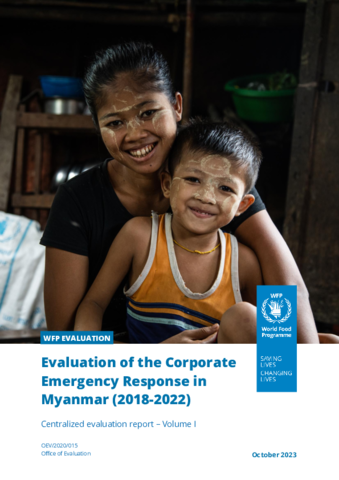
It aimed to inform the design of a new interim country strategic plan (ICSP) for Myanmar and WFP’s emergency response practice globally. While the focus of the evaluation was on the corporate emergency response to a series of crises affecting Myanmar, it also covered WFP’s work under the entire country strategic plan (CSP) for 2018–2023, with a special emphasis on the period from 2020 onwards.
The evaluation concluded that:
WFP achieved a major scale-up in response to consecutive crises in Myanmar, using its growing role as a humanitarian agency prudently and effectively, in coordination with United Nations partners. It carefully managed risks and balanced tensions between humanitarian principles but risks to cooperating partners require more attention. While assistance was effectively targeted in areas with access, humanitarian needs in conflict-affected areas are likely to be underestimated, which could lead to significant coverage gaps . Several shocks in Myanmar have diverted WFP from its original CSP goal of providing support for medium-term, government-led development. In the post-military takeover context, WFP lacked a strategic approach for resilience building at community and systems levels.
